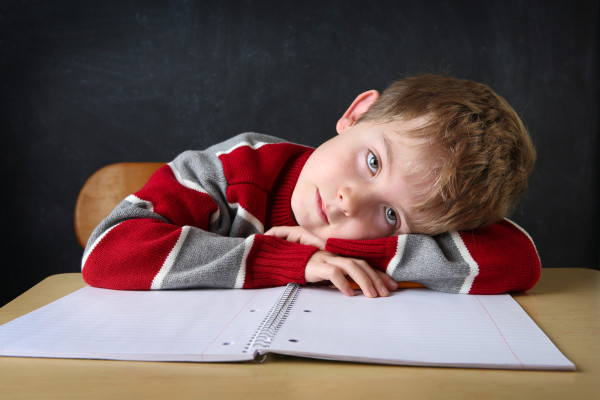Sleepiness: causes and methods of dealing with it
Sleepiness often overwhelms office workers and housewives. They complain of heaviness in the eyelids, yawning, thoughts are busy only with how to quickly get to bed. Coffee and other energy drinks don't help. If a person has the following signs, then something needs to be done: fatigue, which is constantly present; poor memory; trouble concentrating; absent-mindedness; chronic headaches.
Content
Causes of drowsiness
Each person has a different cause of sleepiness. Most often this is a banal lack of sleep. If for several days a person does not comply with the sleep and wakefulness regime, then constant sleepiness cannot become news to him. Lack of sleep is especially difficult in adulthood and old age.
Other causes of sleepiness include:
- acclimatization;
- changes in the weather;
- overstrain of the nervous plan;
- lack of vitamins, etc.
But there are more serious causes of drowsiness, which are associated with the internal state of the body. In this case, it is worth visiting a doctor who, in mild situations, will prescribe the necessary vitamins and remedies to relieve fatigue. Mental balance is very important for a person, if it is violated, depression can develop, it is this that often leads to a lack of sleep.
Eating a strict diet depletes the body and leads to drowsiness. Sometimes, against this background, the sugar content in the blood decreases. And, conversely, overeating, that is, rare but large portions of food, lead to a rush of blood to the stomach and a person wants to sleep.
Diseases can also cause drowsiness, a similar symptom occurs with the following ailments:
- anemia, when there is not enough iron in the body;
- diabetes;
- diseases associated with dysfunction of the thyroid gland;
- pathology of the kidneys and liver.
Dizziness and drowsiness
If drowsiness and the development of dizziness against this background occur occasionally, then one cannot talk about health problems, since a similar condition sometimes occurs in healthy people. But if attacks of dizziness and drowsiness occur with enviable regularity, then this should be a reason to see a doctor. In medicine, there is a concept of false and true vertigo.
If there is a false dizziness, then it may indicate the following pathologies:
- osteochondrosis and vertebral injuries;
- neurasthenia, depression;
- migraine;
- hypotension;
- decrease in hemoglobin;
- period of bearing the child;
- infections;
- diabetes;
- heart disease, etc.
With true dizziness, the causes lie in completely different diseases:
- Meniere's disease;
- protracted otitis media;
- head injury;
- swelling in the brain or ear;
- poor work of the vestibular apparatus.
Sleepiness in a child
If we talk about the sleepiness of a small child, then it is worth knowing that prolonged sleep in newborns up to 6 months is a normal indicator.
- Babies up to 2 months old can sleep up to 18 hours a day. And this is not a sign of physical illness.
- The sleep norm for children 3-4 months old is 16-17 hours a day.
- By 6 months, it decreases to 15-16 hours.
- Up to a year, the sleep schedule can vary depending on the state of the baby's nervous system, the environment and regime in the family, the nature of the diet, etc. But on average, this figure is 11-14 hours.
But if drowsiness in a young child is accompanied by the following symptoms, then it cannot indicate the norm:
- The appearance of vomiting, frequent loose stools, or, on the contrary, there is no stool for a long time.
- Increased body temperature.
- Lack of response to touch and voice.
- Prolonged sucking on the breast or bottle.
In older children, sleepiness can indicate a number of conditions that are common in adults. They are listed above.
If the child was previously active and mobile, and now he is constantly tending to sleep, then do not be lazy and seek help from a doctor. The most common cause of this condition is various infections. Modern medicine successfully treats them with antibacterial agents.
How to get rid of sleepiness
If sleepiness is caused by lack of sleep or other harmless reasons, then the following tips will help you get rid of it:
- Sleep should be strictly observed. An adult needs 7-8 hours of sound sleep. To achieve this, additional rules are needed:
- Try to follow the daily routine - wake up and fall asleep at the same time.
- The bedroom should be completely dark during sleep.
- The mattress, blanket and pillows must be of good quality and of a medical grade.
- If falling asleep is difficult, read a book and do a relaxing stretch or massage.
- Before going to bed, you should not sit at the computer, watch the TV, or take your phone with you to bed.
- When you wake up, part the curtains and plunge into the sunlight. He will charge you with vigor and energy for the whole day. Sunlight has been shown to signal the brain when it wakes up that it's time to wake up and get down to business.

- If you feel sleepy, wash your face with cold water. And if you take a contrast shower after waking up, then you will improve blood circulation throughout the body and the feeling of sleepiness will not bother you during the day.
- A good remedy for sleepiness is a cup of tea in the morning. You can add a spoonful of honey to it.
- Water with lemon has the same property.
- Breakfast should consist of healthy foods that contain a minimum of fat, more protein and complex carbohydrates. These can be such components: dairy dishes, nuts, eggs, whole grain bread, oatmeal, fresh vegetables and fruits, yogurt, etc. In addition, it is imperative to include foods containing omega-3 fatty acids in the diet. But foods that contribute to drowsiness should be excluded. These are fatty meats and fish, pasta, sweet pastries, potatoes and white rice, coffee, alcohol.
- Exercise regularly.
- Since drowsiness often appears after a nervous overstrain, try to avoid stressful situations.
If drowsiness has developed against the background of an illness, then a doctor is determined with treatment. Everything will take place on an individual basis.
Preventing drowsiness
As you know, drowsiness often prevails over office workers and people with a monotonous lifestyle. Here are some tips to help you avoid fatigue and sleep cravings during the day:
- If you are sedentary, such as at a computer monitor, take 10-15 minute breaks every 2 hours. At this time, you can stand up and carry out simple physical exercises.
- Conversely, during physical labor, take a break to read a book or newspaper.
- If the work is routine, then at least on weekends change the usual situation with a trip out of town, going out, etc.
- Be outdoors and exercise more often.
- If you have such a need, then on the weekend laze, sleep off, lie in bed.
All these tips will relieve you of such conditions as chronic fatigue and drowsiness.





